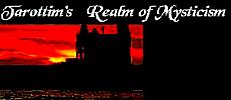The Aztec Empire
![]()
Organization
Contrary to what has been believed, the Aztec people were not an empire in the full extension of the word. True, nobody could disobey an order by the Great Speaker or HUEY TLATOANI- correct name of the Aztec Emperor-, though, he could be dismissed, just li it happenned to Moctezuma during the Spanish invasion: he was dismissed and in his place the young Warrior Cuahutemoc was placed.
The son of the Great Speaker not always was the heir. It was a Council of Wise Men- very similar to the Roman Senate- that decided in a democratic way who would be the next ruler of Tenochtitlan. In a way, the election of the Great Speaker was very similar to the election of the Byzantine Emperor (coincidentaly, these two cultures are contemporary, the Byzantine ending years before the discovery of America).
Once the Great Speaker was elected, he was obeyed in everything, since he was the representant of the god Huitzilipochtli on the Earth. The Great Speaker was also head of the government, and the main priest of the Great Temple.
This curious selection process is due, according to several investigators basing themselves in leyends and Aztec tales, to the fact that the first Aztec Ruler Acamapichtli (1376), had for a main wife a woman called Ilancueitl, daughter of the lord of a nearby town.
This girl was sterile, which caused that the Aztec Lords offered their daughters to him and he also took his women slaves as companions. Logically, this caused that more than one resulted pregnant of the Aztec King and each one claimed the right of carrying the future heir in their wombs. When the mayority of the sons of Acamapichtli were old enough, the Emperor ordered a group of priests and great warriors to gather to decide who would the next Great Speaker be.
This originated the birth of the Council of Wise Men, whose members would be the greatest warriors and the wisest priests. Their selection was also democratic since these were also elected by their own Calpullis - we will talk about these later -. This selection process lasted all the time the Aztec Empire lasted.
This way never did a dinasty exist (sometimes the Great Speaker was a close reltive of the one before, as Moctezuma was Ahuizotl's nephew) of Aztec families, preventing with this the aging of the civilization, just like it happened with the Czars in Rusia and the kings in France.
The heart of the Mexica Empire was the Calpulli. Even before the empire existed, the Calpulli existed already. This was generally formed by relatives or people of the same profesion, in this manner there were Calpullis for priests, warriors, carpenters, clay workers, etc...
Each Calpulli was a form of autonomous government, with its own Speaker or governor, who was elected by the oldest men living in the Calpulli. Just to give us an idea, we will say that each Calpulli had its own school, its own temple, and if the Calpulli was important sometimes it had its own garrison.
In the Aztec society there were no closed societies. Anyone could get to be a member of the Council of Wise Men. Though, only the men belonging to the nobility could be Great Speakers. There is an Aztec story that narrates how a Tlaxcalteca, Najahuatzin- called the same way as the god who gave life to the Fifth Sun-, was caught by Moctezuma stealing wood from his private forest.
When Nanahuatzin answered honestly, Moctezuma awardered him by naming him Main Voice. This story shows how even the poorest people could reach the highest levels in the Aztec society. This was the reazon why the Aztecs were able to control and dominate the largest empire in all of North America and one of the largest worldwide.
An Aztec custom consisted in that the Great Speaker, once elected, was no longer human and was a god from then on. In fact, each Aztec Great Speaker was worshiped in the Templo Mayor.
The Aztec protocol was that nobody could look directly to the emperor, nor talk or hear him. That is why there was a spokesman who relayed what his lord had said to the subjects and what these would respond to the emperor. Though, in cases of emergency, the king talked directly to his Council.
![]()
